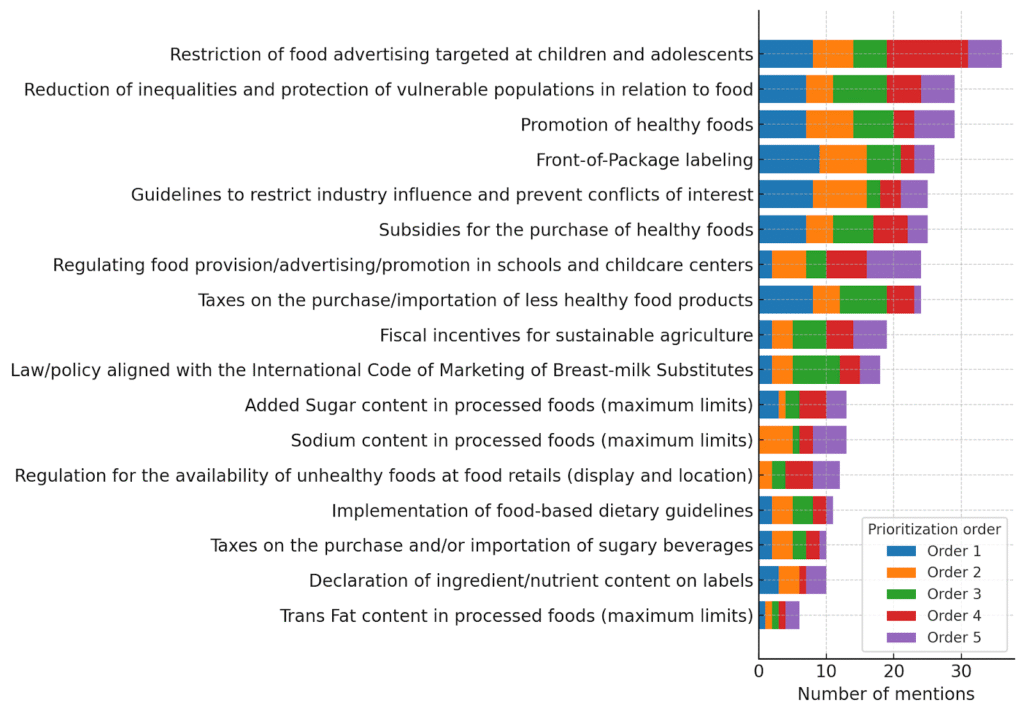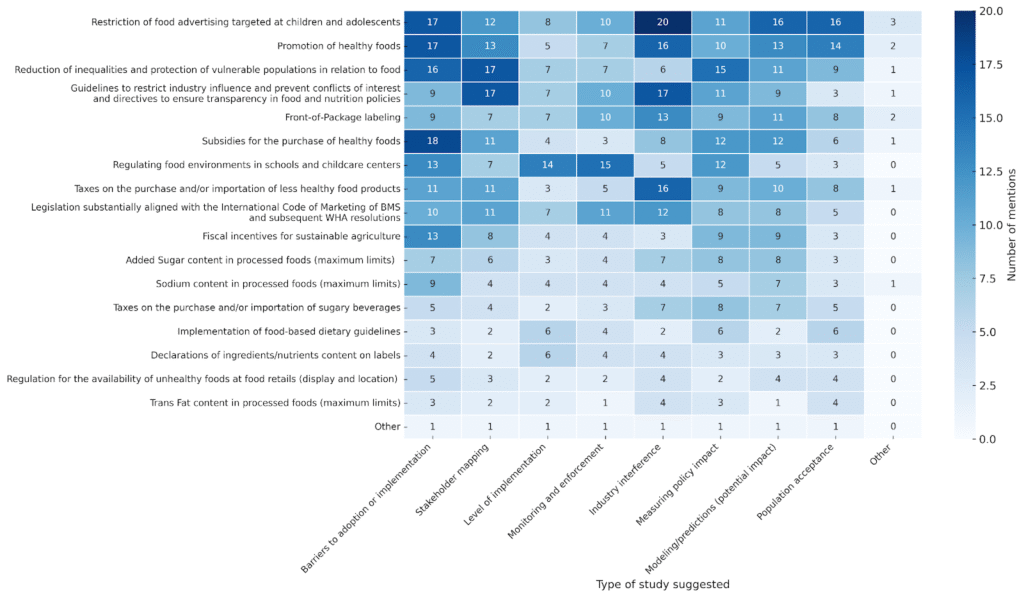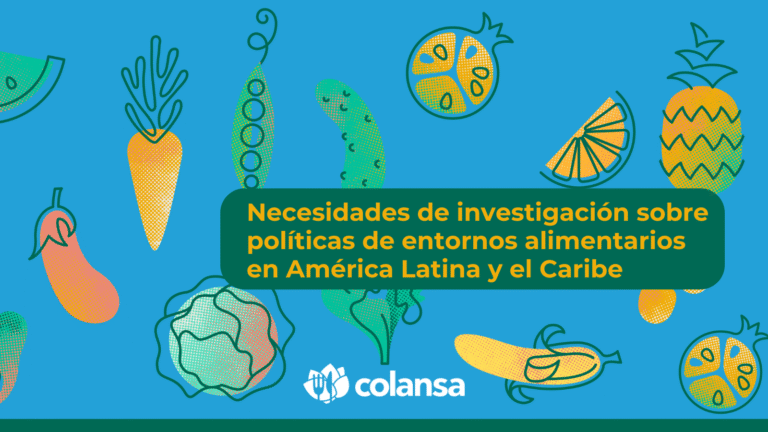Setting and Purpose of the Study
Food environments in Latin America and the Caribbean have undergone profound transformations that impact dietary patterns and public health. This study, developed under COLANSA, sought to identify the research needs perceived by researchers and leaders in public policy advocacy aimed at improving healthy food environments.
Methodology
Electronic survey among COLANSA members and their referrals from the region. Participants were asked to prioritize specific public policies that require more research for their development and implementation, as well as the types of studies needed. Each participant could select up to 5 research priorities.
Main Results
Responses were received from 73 participants from 17 countries (Argentina, Barbados, Bolivia, Brazil, Chile, Colombia, Costa Rica, Ecuador, El Salvador, Guatemala, Honduras, Jamaica, Mexico, Paraguay, Peru, Uruguay, Venezuela). Most participants were affiliated with academic institutions and civil society organizations.
The most frequently mentioned priorities were:
- Restricting food advertising targeted at children and adolescents;
- Reducing inequalities and protecting vulnerable populations;
- Promoting healthy foods;
- Front-of-package food labeling;
- Implementing guidelines to restrict the influence of the food industry and prevent conflicts of interest in the development of food policies;
- Subsidies for the purchase of healthy foods.
Figure 1. Research Priorities

The most suggested types of studies focused on the analysis of implementation barriers, industry interference, impact evaluation, and mapping of involved stakeholders.
Figure 2. Suggested Study Types

Implications and Next Steps
The study results highlight both progress and gaps in the implementation of food environment policies in the region. There is a need to strengthen applied research that allows for the evaluation of implementation, monitoring of impact, and reduction of barriers linked to industry interference.
The importance of regional collaboration to generate useful evidence that guides more effective and equitable policies in Latin America and the Caribbean is emphasized.
For further Information:
Latin American and Caribbean Nutrition and Health Community of Practice (COLANSA)
Based on the collaborative study led by COLANSA and the Institute for Clinical Effectiveness and Health Policy (IECS), 2024–2025.

